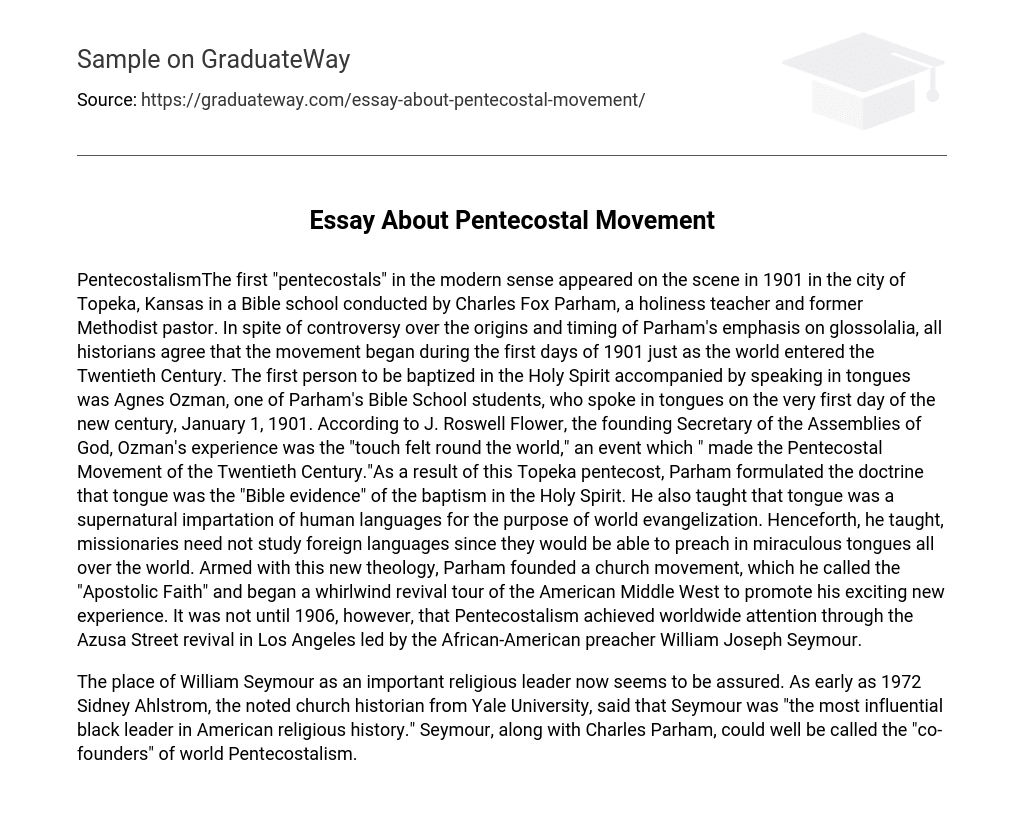In 1901, Pentecostalism emerged in Topeka, Kansas, when Charles Fox Parham, a holiness teacher and former Methodist pastor, conducted a Bible school. Despite controversy surrounding the origins of Parham’s emphasis on speaking in tongues (known as glossolalia), all historians agree that the movement started at the beginning of 1901. Agnes Ozman, a student at Parham’s Bible school, became the first person to be baptized in the Holy Spirit and spoke in tongues on January 1, 1901. This event, according to J. Roswell Flower, the founding Secretary of the Assemblies of God, was the catalyst for the worldwide Pentecostal Movement of the Twentieth Century. Following this pivotal moment, Parham developed the doctrine that speaking in tongues was the “Bible evidence” of being baptized in the Holy Spirit. He also taught that speaking in tongues was a supernaturally-given ability to speak human languages for the purpose of global evangelization. Consequently, missionaries would no longer need to study foreign languages as they could preach in miraculous tongues all over the world. Parham established a church movement called the “Apostolic Faith” and embarked on a vigorous revival tour throughout the American Middle West to promote this remarkable new experience.The Azusa Street revival in Los Angeles, led by African-American preacher William Joseph Seymour, brought worldwide attention to Pentecostalism in 1906.
The position of William Seymour as a significant figure in religion is now considered certain. In 1972, Sidney Ahlstrom, a renowned church historian from Yale University, described Seymour as “the most influential black leader in American religious history.” Alongside Charles Parham, Seymour could be referred to as the “co-founders” of global Pentecostalism.





